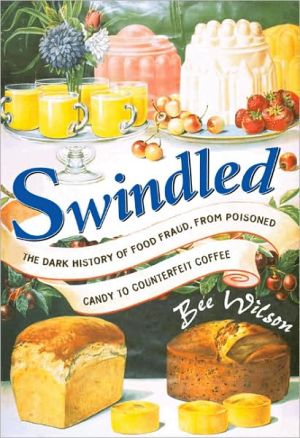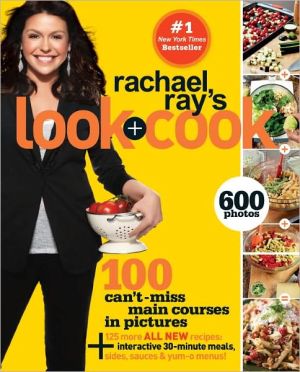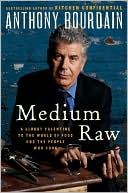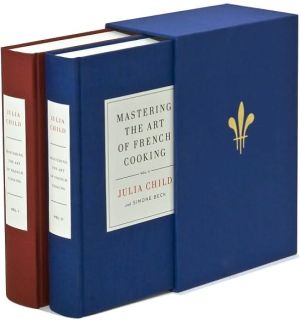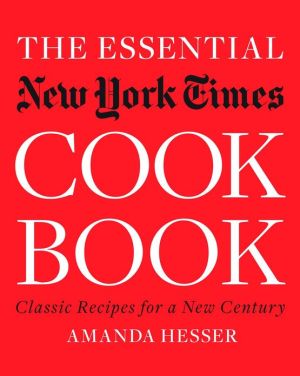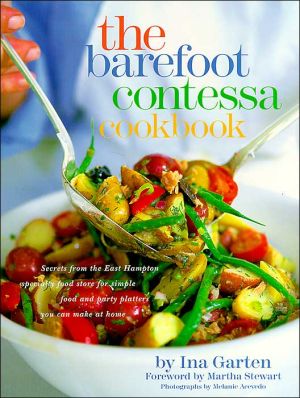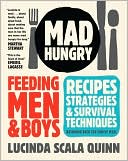Swindled: The Dark History of Food Fraud, from Poisoned Candy to Counterfeit Coffee
Bad food has a history. Swindled tells it. Through a fascinating mixture of cultural and scientific history, food politics, and culinary detective work, Bee Wilson uncovers the many ways swindlers have cheapened, falsified, and even poisoned our food throughout history. In the hands of people and corporations who have prized profits above the health of consumers, food and drink have been tampered with in often horrifying ways—padded, diluted, contaminated, substituted, mislabeled, misnamed,...
Search in google:
"Bee Wilson is a terrific writer who tells great stories, and her book could not be more timely given what's going on in the Chinese food industry today."--Marion Nestle, author of Food Politics and What to Eat"No other book tells the history of food adulteration in this way. Swindled is ambitious in its coverage and extremely well written."--Andrew F. Smith, editor of the Oxford Companion to American Food and Drink The Barnes & Noble Review A crusading chemist once asked his fellow Englishmen, "Who but a maniac would choose to season his victuals with poison?" This was at a time -- 1820 -- when food was so adulterated that only a willed suspension of disbelief made it consumable: water in the milk, sand in the sugar, sweepings in the tea, of course, but weapons-grade additives, too, such as lead to sweeten ropy wine, copper to brighten greens, Prussian blue toxins to make baby's bonbons the merrier. Food writer Bee Wilson brings a feisty, learned hand to this history of food swindles while coaxing dark comedy from a greed so biblically powerful it could kill. The adulterer's cabinet was full of ingenious horrors to bamboozle the public, and the quick-buck schemes are terrible and fascinating. Squaring the frauds with their greater economic and political contexts is where Wilson hits an artful stride. It is bracing to witness her social conscience as she explains how the shift from agricultural to industrial society dimmed our familiarity with traditional foods, how swindling sunders the trust of citizens, why the poor are disproportionately affected by swindles, and how the thievery is abetted by governments loath to intervene in the free market, for the laissez-faire state is on the lookout only when its revenues are jeopardized. Lest we feel distant from the wily 19th-century grocer, Wilson makes it gin clear that watering down, coloring up, bulking out, and plain poisoning are still with us, as are dyes, flavorings, and fortifiers -- pettifogging, in a word, the same old deceit now legalized. --Peter Lewis
1 German Ham and English Pickles 12 A Jug of Wine, a Loaf of Bread 463 Government Mustard 944 Pink Margarine and Pure Ketchup 1525 Mock Goslings and Pear-nanas 2136 Basmati Rice and Baby Milk 272Epilogue: Adulteration in the Twenty-first Century 322Notes 329Bibliography 351Acknowledgments 363Picture Credits 365Index 367
\ The New YorkerWilson's latest treatise, on contaminated, adulterated, and fake foods in the modern era, feels almost prophetic. If there's a whiff of pedantry to the enterprise, Wilson overwhelms it with sheer detail: the flavor of lead salts, so delicious that they were used to sweeten wine; the fad for mock food in wartime Britain (mock chops made of flour, potato, and onion); the fact that Campbell's concealed marbles in the soup photographed for advertisements, to make it look thicker; Donald Rumsfeld's role as a champion of aspartame.\ \ \ \ \ The Trenton TimesThe cheerful cover of the book, decorated with breads, desserts and beverages, belies the subject matter inside. At a time when many people worry about commercially prepared foods, she offers a historical perspective on the ways food has been cheapened, falsified and poisoned over the centuries.\ — Susan Sprague Yeske\ \ \ The Globe and MailWhat [Wilson] constructs is a tale of greed, chemical imbalance and, often, legislative failure in the food production and sale in Britain, the United States and, to a lesser extent, Canada.\ — Gordon Morash\ \ \ \ \ The American InterestAs Wilson traces, with both precision and passion, the many changes wrought on the world of food over several centuries, a pattern seems to emerge: 'Improvements' often result in food of dubious if not dangerous qualities.\ — Jennifer Hewett\ \ \ \ \ The Daily TelegraphA rigorous, but very entertaining history of food adulteration from medieval times onwards.\ — Toby Clements\ \ \ \ \ The TimesWilson tells chronologically and admirably a continuing and bittersweet story.\ — Ross Leckie\ \ \ \ \ Haphazard Gourmet Girls blogBritish food writer Bee Wilson's new book Swindled could not have been published at a more timely moment. Subtitled The Dark History of Food Fraud From Poisoned Candy To Counterfeit Coffee, it's a masterwork of Apocalypse Chow Anthropology, and examines the intentionally adulterated foods foisted on American and British eaters from Victorian times to the present. Swindled reads like an often-funny detective story with crazy characters perpetrating incredible foodie crimes—except that each case Ms. Wilson presents is true. Along the way, Ms. Wilson carefully points out how government policies that have liberalised free trade and encouraged globalization have served to increase profits for foodie crims, while exposing innocent eaters to grave harm.\ \ \ \ \ Times Literary Supplement[L]ively and unsettling. . . . The blatant frauds of the nineteenth and early twentieth centuries are set alongside the more subtle (and mostly legal) tinkering with food in the modern world. . . . Wilson places contemporary concerns about what we are eating in an original and thought-provoking context.\ — Paul Freedman\ \ \ \ \ Times[Wilson] wants to shake us awake, to make us look afresh at the food we eat. She does so triumphantly. . . . It is her considered and often humorous approach that makes this book so successful—and so alarming.\ — Clare Clark\ \ \ \ \ Chronicle of Higher EducationFood producers, and whatever they can get away with, is . . . the subject of Bee Wilson's lively book. . . . Her focus is on two basics: poisoning and cheating. In early-19th-century Britain, there was plenty of both. For example, pickles were green from toxic copper, children's candies gained their bright colors from lead and other poisons, and the white bread of the upper crust was often bleached with alum.\ — Nina Ayoub\ \ \ \ \ Telegraph[A] fascinating and curiously uplifting read.\ — Jan Moir\ \ \ \ \ Time OutThink the food we eat today is adulterated and unsafe to eat? Read this book and be amazed our ancestors ever survived to their next meal. . . . [Wilson's] intellectual rigor and disciplined research skills prove a great match with her seamless and engaging writing—she manages to bring history alive, and leaves you wanting more.\ — Guy Dimond\ \ \ \ \ Financial Times[E]ngrossing and occasionally revolting.\ — David Honigmann\ \ \ \ \ IndependentMarvellous and horrifying. . . . We're all caught in a food web, and Wilson shows us with urgent clarity how slender its strands are, and how little we can really trust them.\ — Diane Purkiss\ \ \ \ \ BookForumSobering (yet entertaining) . . . Not much has changed in the basic logic of food production since [eighteenth- and nineteenth-century England], Wilson observes—save for the gradual effort to research the threats that adulteration poses, and the still slower progress toward the effective regulation of food.\ — Phoebe Connelly\ \ \ \ \ ForeWord MagazineAn entertaining history of food adulteration, rather than a the-sky-is-falling warning.\ — Whitney Hallberg\ \ \ \ \ Mail on Sunday[R]iveting. . . . If ever a book could convince you that the only food worth eating is that which you have scrupulously shopped for in reputable local shops and cooked yourself from scratch, it is this one.\ — Val Hennessy\ \ \ \ \ New ScientistFrom chemist Friedrich Accum exposing lead-tainted candies in 1820s London to ersatz wartime foods like acorn 'coffee, Swindled dines with gusto upon centuries of poisonous penny-pinching, profitable mass production and open fakery. The greatest narrative relish is saved for the wildly felonious 19th century, but Wilson's account of faked infant formula and adulterated lard haunting modern China's rapid industrialisation shows our Accums will always be busy.\ — Paul Collins\ \ \ \ \ Maui NewsWilson is, no contest, the best stylist writing about food for newspapers in English . . . and her chapters on the early history of food fraud are strong stuff.\ — Harry Eagar\ \ \ \ \ Sacramento Book Review[Wilson's] writing is engaging, the illustrations chosen often humorous counterpoints to the scandal at hand. The major point that comes through clear, is that, when the world moved from a primarily agrarian model to industrial, we lost touch with our ability to recognize food in its natural state and began to eat food processed, prepared, and created to make the most profit possible-even at a risk to the eater's health. Disturbing? Yes. You may find yourself reading the ingredient lists of your food with a more educated eye.\ \ \ \ \ Foreword Magazine[Wilson] pitches the reader into a brilliantly lit supermarket of stomach-turning information about the adulteration of basic foodstuffs. . . . Wilson zestfully reports on scandals, outcries, high-profile food corrupters, and crusaders (some themselves dealt in less detectable adulterants), recording the ever-lagging legislation that brought some safety to much of the basic food supply. . . . An impressive and important book.\ — Peter Skinner\ \ \ \ \ Sunday TelegraphSweets used to get their colour from toxic lead, copper or mercury—this is just one of the shocking facts in Bee Wilson's lively history of food adulteration. Her story focuses on Britain and the USA, in which rapid industrialization and lack of government regulation have allowed free rein to 'food cheats'.\ — Katie Owen\ \ \ \ \ Corporate CounselWilson's sharp wit and expansive research make her book an engaging read.\ — Amy Vincent\ \ \ \ \ Food ManagementSwindled is unsettling with a good sense of humor.\ \ \ \ \ ChoiceIn this engaging study, Wilson narrates the history of food adulteration in Britain and the US. According to the author, this history is essentially the account of an epic battle between the science of deception and the science of detection. . . . This volume will amply reward the growing number of readers concerned about both food authenticity and food safety.\ — D.M. Gilbert\ \ \ \ \ Journal of American HistoryI recommend Swindled for undergraduate history courses on food, culture, or public policy, but it is worth noting that Wilson drops the historian's dispassionate analysis when discussing modern topics. Here her normative frame becomes clear (one I embrace as a citizen if not as a historian); she is a crusading reformer against today's 'adulterated' foods laden with additives, preservatives, vitamin and mineral supplements, flavorings, and sweeteners.\ — James A. Spiller\ \ \ \ \ Barnes and Noble ReviewFood writer Bee Wilson brings a feisty, learned hand to this history of food swindles while coaxing dark comedy from a greed so biblically powerful it could kill. The adulterer's cabinet was full of ingenious horrors to bamboozle the public, and the quick-buck schemes are terrible and fascinating. Squaring the frauds with their greater economic and political contexts is where Wilson hits an artful stride. It is bracing to witness her social conscience as she explains how the shift from agricultural to industrial society dimmed our familiarity with traditional foods, how swindling sunders the trust of citizens, why the poor are disproportionately affected by swindles, and how the thievery is abetted by governments loath to intervene in the free market, for the laissez-faire state is on the lookout only when its revenues are jeopardized. Lest we feel distant from the wily 19th-century grocer, Wilson makes it gin clear that watering down, coloring up, bulking out, and plain poisoning are still with us, as are dyes, flavorings, and fortifiers—pettifogging, in a word, the same old deceit now legalized.\ — Peter Lewis\ \ \ \ \ Times Literary Supplement[L]ively and unsettling. . . . The blatant frauds of the nineteenth and early twentieth centuries are set alongside the more subtle (and mostly legal) tinkering with food in the modern world. . . . Wilson places contemporary concerns about what we are eating in an original and thought-provoking context.\ \ \ \ \ Times[Wilson] wants to shake us awake, to make us look afresh at the food we eat. She does so triumphantly. . . . It is her considered and often humorous approach that makes this book so successful—and so alarming.\ \ \ \ \ Chronicle of Higher EducationFood producers, and whatever they can get away with, is . . . the subject of Bee Wilson's lively book. . . . Her focus is on two basics: poisoning and cheating. In early-19th-century Britain, there was plenty of both. For example, pickles were green from toxic copper, children's candies gained their bright colors from lead and other poisons, and the white bread of the upper crust was often bleached with alum.\ \ \ \ \ Telegraph[A] fascinating and curiously uplifting read.\ \ \ \ \ Time OutThink the food we eat today is adulterated and unsafe to eat? Read this book and be amazed our ancestors ever survived to their next meal. . . . [Wilson's] intellectual rigor and disciplined research skills prove a great match with her seamless and engaging writing—she manages to bring history alive, and leaves you wanting more.\ \ \ \ \ Financial Times[E]ngrossing and occasionally revolting.\ \ \ \ \ IndependentMarvellous and horrifying. . . . We're all caught in a food web, and Wilson shows us with urgent clarity how slender its strands are, and how little we can really trust them.\ \ \ \ \ BookForumSobering (yet entertaining) . . . Not much has changed in the basic logic of food production since [eighteenth- and nineteenth-century England], Wilson observes—save for the gradual effort to research the threats that adulteration poses, and the still slower progress toward the effective regulation of food.\ \ \ \ \ ForeWord MagazineAn entertaining history of food adulteration, rather than a the-sky-is-falling warning.\ \ \ \ \ Mail on Sunday[R]iveting. . . . If ever a book could convince you that the only food worth eating is that which you have scrupulously shopped for in reputable local shops and cooked yourself from scratch, it is this one.\ \ \ \ \ Barnes and Noble ReviewFood writer Bee Wilson brings a feisty, learned hand to this history of food swindles while coaxing dark comedy from a greed so biblically powerful it could kill. The adulterer's cabinet was full of ingenious horrors to bamboozle the public, and the quick-buck schemes are terrible and fascinating. Squaring the frauds with their greater economic and political contexts is where Wilson hits an artful stride. It is bracing to witness her social conscience as she explains how the shift from agricultural to industrial society dimmed our familiarity with traditional foods, how swindling sunders the trust of citizens, why the poor are disproportionately affected by swindles, and how the thievery is abetted by governments loath to intervene in the free market, for the laissez-faire state is on the lookout only when its revenues are jeopardized. Lest we feel distant from the wily 19th-century grocer, Wilson makes it gin clear that watering down, coloring up, bulking out, and plain poisoning are still with us, as are dyes, flavorings, and fortifiers—pettifogging, in a word, the same old deceit now legalized.\ \ \ \ \ New ScientistFrom chemist Friedrich Accum exposing lead-tainted candies in 1820s London to ersatz wartime foods like acorn 'coffee, Swindled dines with gusto upon centuries of poisonous penny-pinching, profitable mass production and open fakery. The greatest narrative relish is saved for the wildly felonious 19th century, but Wilson's account of faked infant formula and adulterated lard haunting modern China's rapid industrialisation shows our Accums will always be busy.\ \ \ \ \ The Trenton TimesThe cheerful cover of the book, decorated with breads, desserts and beverages, belies the subject matter inside. At a time when many people worry about commercially prepared foods, she offers a historical perspective on the ways food has been cheapened, falsified and poisoned over the centuries.\ \ \ \ \ Maui NewsWilson is, no contest, the best stylist writing about food for newspapers in English . . . and her chapters on the early history of food fraud are strong stuff.\ \ \ \ \ Foreword Magazine[Wilson] pitches the reader into a brilliantly lit supermarket of stomach-turning information about the adulteration of basic foodstuffs. . . . Wilson zestfully reports on scandals, outcries, high-profile food corrupters, and crusaders (some themselves dealt in less detectable adulterants), recording the ever-lagging legislation that brought some safety to much of the basic food supply. . . . An impressive and important book.\ \ \ \ \ The Globe and MailWhat [Wilson] constructs is a tale of greed, chemical imbalance and, often, legislative failure in the food production and sale in Britain, the United States and, to a lesser extent, Canada.\ \ \ \ \ The American InterestAs Wilson traces, with both precision and passion, the many changes wrought on the world of food over several centuries, a pattern seems to emerge: 'Improvements' often result in food of dubious if not dangerous qualities.\ \ \ \ \ The Daily TelegraphA rigorous, but very entertaining history of food adulteration from medieval times onwards.\ \ \ \ \ Sunday TelegraphSweets used to get their colour from toxic lead, copper or mercury—this is just one of the shocking facts in Bee Wilson's lively history of food adulteration. Her story focuses on Britain and the USA, in which rapid industrialization and lack of government regulation have allowed free rein to 'food cheats'.\ \ \ \ \ The TimesWilson tells chronologically and admirably a continuing and bittersweet story.\ \ \ \ \ Corporate CounselWilson's sharp wit and expansive research make her book an engaging read.\ \ \ \ \ ChoiceIn this engaging study, Wilson narrates the history of food adulteration in Britain and the US. According to the author, this history is essentially the account of an epic battle between the science of deception and the science of detection. . . . This volume will amply reward the growing number of readers concerned about both food authenticity and food safety.\ \ \ \ \ Journal of American HistoryI recommend Swindled for undergraduate history courses on food, culture, or public policy, but it is worth noting that Wilson drops the historian's dispassionate analysis when discussing modern topics. Here her normative frame becomes clear (one I embrace as a citizen if not as a historian); she is a crusading reformer against today's 'adulterated' foods laden with additives, preservatives, vitamin and mineral supplements, flavorings, and sweeteners.\ \ \ \ \ Chronicle of Higher EducationFood producers, and whatever they can get away with, is . . . the subject of Bee Wilson's lively book. . . . Her focus is on two basics: poisoning and cheating. In early-19th-century Britain, there was plenty of both. For example, pickles were green from toxic copper, children's candies gained their bright colors from lead and other poisons, and the white bread of the upper crust was often bleached with alum.\ — Nina Ayoub\ \ \ \ \ New ScientistFrom chemist Friedrich Accum exposing lead-tainted candies in 1820s London to ersatz wartime foods like acorn 'coffee, Swindled dines with gusto upon centuries of poisonous penny-pinching, profitable mass production and open fakery. The greatest narrative relish is saved for the wildly felonious 19th century, but Wilson's account of faked infant formula and adulterated lard haunting modern China's rapid industrialisation shows our Accums will always be busy.\ — Paul Collins\ \ \ \ \ The American InterestAs Wilson traces, with both precision and passion, the many changes wrought on the world of food over several centuries, a pattern seems to emerge: 'Improvements' often result in food of dubious if not dangerous qualities.\ — Jennifer Hewett\ \ \ \ \ The IndependentMarvellous and horrifying. . . . We're all caught in a food web, and Wilson shows us with urgent clarity how slender its strands are, and how little we can really trust them. --Diane Purkiss\ \ \ \ \ The Telegraph[A] fascinating and curiously uplifting read. --Jan Moir\ \ \ \ \ The Financial Times[E]ngrossing and occasionally revolting. --David Honigmann\ \ \ \ \ The Times (London)[Wilson] wants to shake us awake, to make us look afresh at the food we eat. She does so triumphantly. . . . It is her considered and often humorous approach that makes this book so successful--and so alarming. --Clare Clark\ \ \ \ \ Times Literary Supplement[L]ively and unsettling. . . . The blatant frauds of the nineteenth and early twentieth centuries are set alongside the more subtle (and mostly legal) tinkering with food in the modern world. . . . Wilson places contemporary concerns about what we are eating in an original and thought-provoking context. --Paul Freedman\ \ \ \ \ The Mail on Sunday[R]iveting. . . . If ever a book could convince you that the only food worth eating is that which you have scrupulously shopped for in reputable local shops and cooked yourself from scratch, it is this one. --Val Hennessy\ \ \ \ \ Time Out (U.K.)Think the food we eat today is adulterated and unsafe to eat? Read this book and be amazed our ancestors ever survived to their next meal. . . . [Wilson's] intellectual rigor and disciplined research skills prove a great match with her seamless and engaging writing--she manages to bring history alive, and leaves you wanting more. --Guy Dimond\ \ \ \ \ Publishers WeeklyStarred Review. \ Columnist and food writer Wilson takes readers to the beginning of the 19th century to document the history of food adulteration-at heart "two very simple principles: poisoning and cheating." Concentrating on Britain and the U.S. (other countries, especially France, navigated food supply industrialization with wiser government policy), Wilson finds the first food crusader in Frederick Accum, a German immigrant who used chemistry to expose the dishonesty of London food purveyors in his Treatise on Adulterations of Food and Culinary Poisons; she finds the first ineffective government response in Parliament's commitment to laissez faire economic policies over citizen safety. In the U.S., New York's 1850s "swill milk" epidemic and Chicago's meat packing industry would eventually lead to the 1906 Pure Food and Drug Act-which probably wouldn't have passed without the popularity of Upton Sinclair's meat packing expose The Jungle, and couldn't stop the most nefarious and prevalent of food frauds, the development of fake foods: margarine, baby formula and thousands more. Wilson follows the economic, cultural and political threads skillfully, reporting on developments as recent as the China baby formula scandal. Prescribing more awareness and regulation, Wilson contends that consumers and governments must recognize the continuous pressure on companies to make money by substituting nutritious, genuine ingredients with adulterants. Timely, witty and purposeful, this thorough history should open a lot of eyes. .\ Copyright © Reed Business Information, a division of Reed Elsevier Inc. All rights reserved.\ \ \ \ \ \ The Barnes & Noble ReviewA crusading chemist once asked his fellow Englishmen, "Who but a maniac would choose to season his victuals with poison?" This was at a time -- 1820 -- when food was so adulterated that only a willed suspension of disbelief made it consumable: water in the milk, sand in the sugar, sweepings in the tea, of course, but weapons-grade additives, too, such as lead to sweeten ropy wine, copper to brighten greens, Prussian blue toxins to make baby's bonbons the merrier. Food writer Bee Wilson brings a feisty, learned hand to this history of food swindles while coaxing dark comedy from a greed so biblically powerful it could kill. The adulterer's cabinet was full of ingenious horrors to bamboozle the public, and the quick-buck schemes are terrible and fascinating. Squaring the frauds with their greater economic and political contexts is where Wilson hits an artful stride. It is bracing to witness her social conscience as she explains how the shift from agricultural to industrial society dimmed our familiarity with traditional foods, how swindling sunders the trust of citizens, why the poor are disproportionately affected by swindles, and how the thievery is abetted by governments loath to intervene in the free market, for the laissez-faire state is on the lookout only when its revenues are jeopardized. Lest we feel distant from the wily 19th-century grocer, Wilson makes it gin clear that watering down, coloring up, bulking out, and plain poisoning are still with us, as are dyes, flavorings, and fortifiers -- pettifogging, in a word, the same old deceit now legalized. --Peter Lewis\ \
